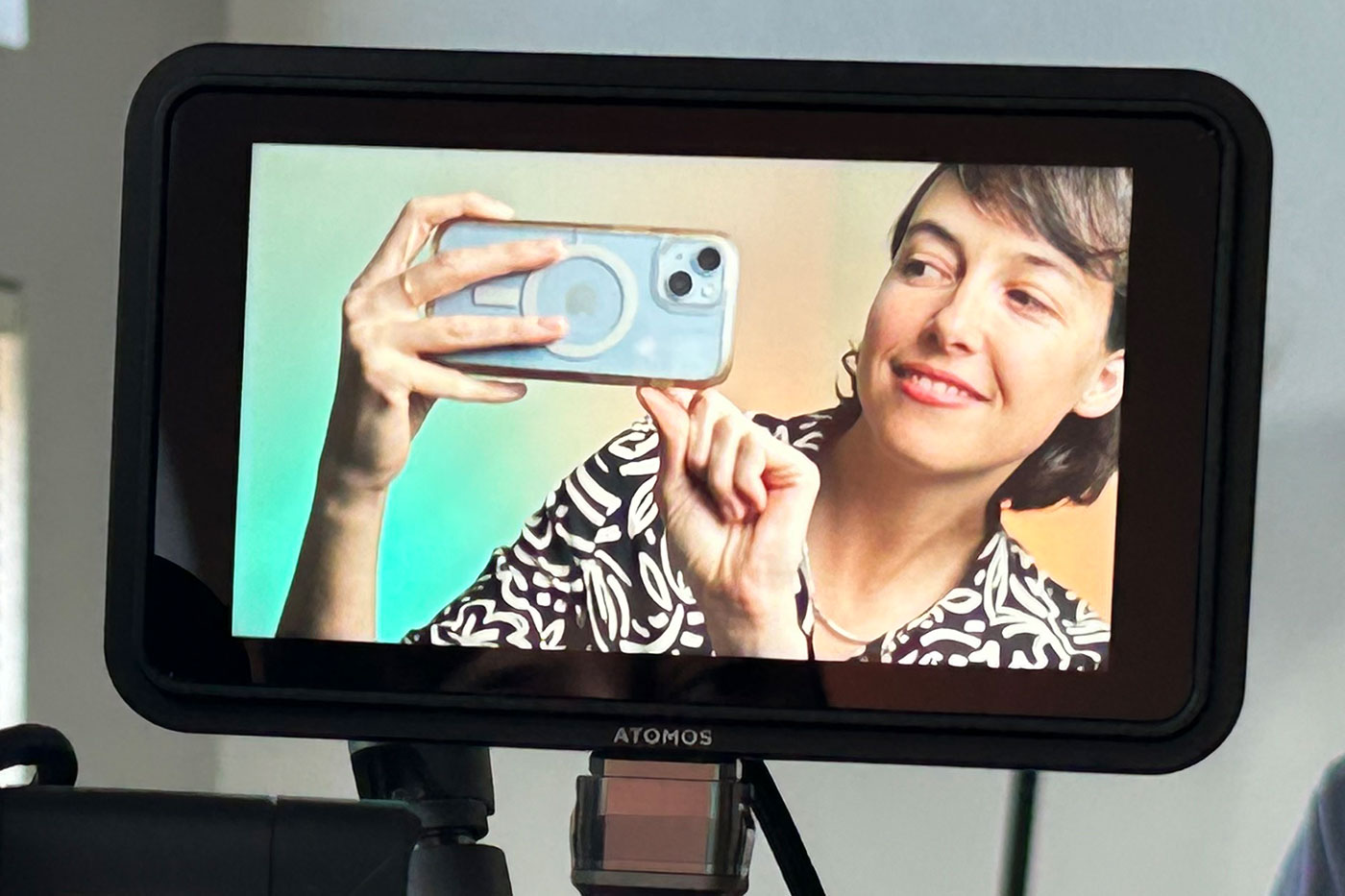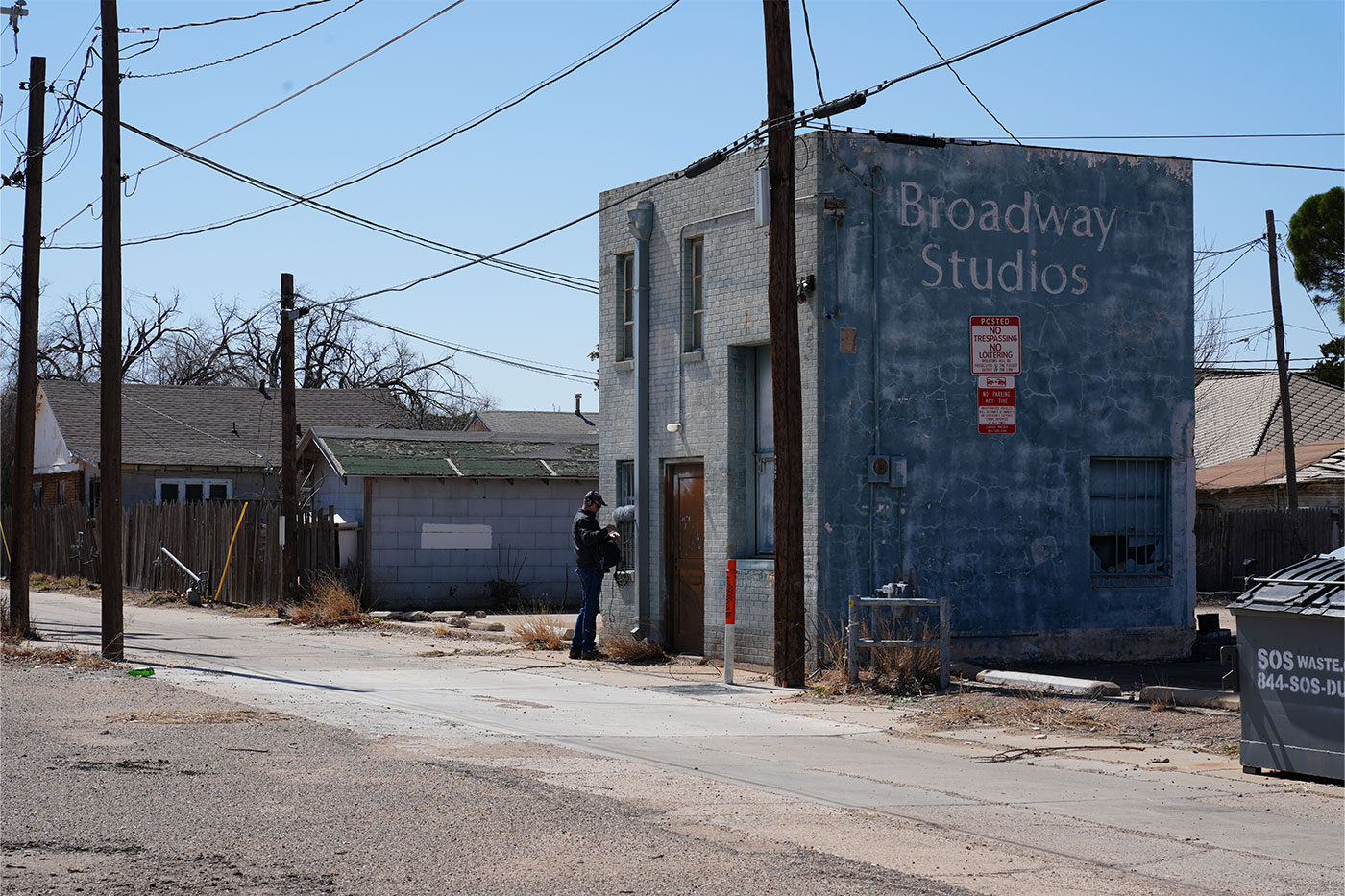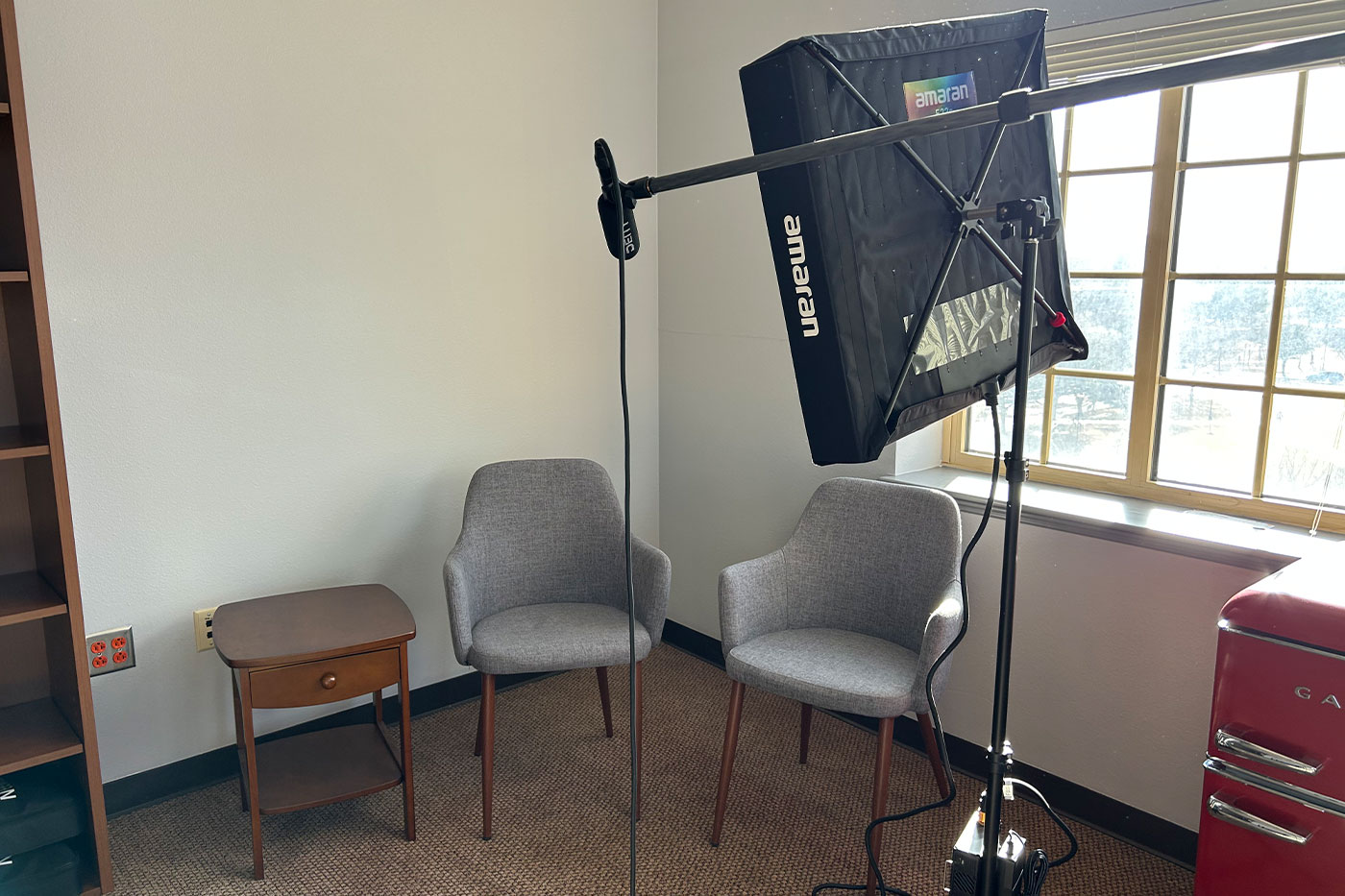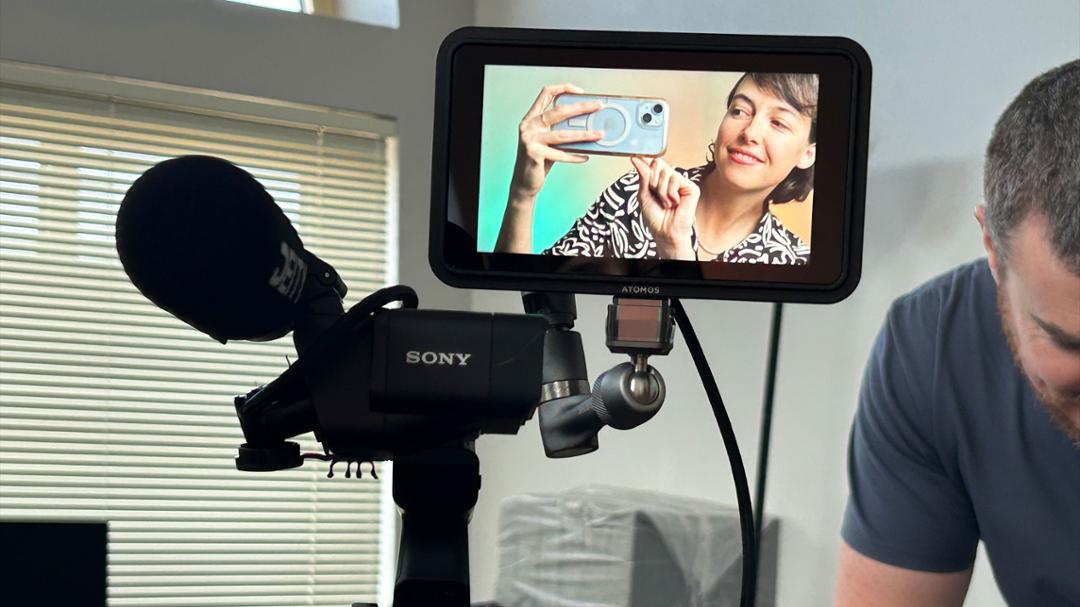Lucy Schiller is the catalyst for a project that will facilitate a better understanding of West Texas through accessible education and expression.
The famous 16th-century French author and philosopher Michel de Montaigne once dedicated an entire chapter, albeit short, of a collection of essays to the various emphases previous civilizations placed on thumbs.
Trivial, n'est-ce pas?
Certainly, anyone would be within their right to think so. But Montaigne’s freedom to write to his heart’s content about how kings tightly entwined their thumbs and sucked each other’s blood to ratify covenants and how Romans kissed thumbs to signify favor is the basis for the longevity of nonfiction.
“That was so long ago, but it’s still unusual as a piece of writing to encounter even today,” said Lucy Schiller, a Texas Tech University assistant professor of creative writing and nonfiction writer. “But that is fundamentally what an essay is; it’s claiming your connection to the world through your own thought.”
In that sense, Schiller views essays and nonfiction writing as intensely related. Also meeting those concepts at a crossroads is history, which shares the priorities of accessing and telling the truth but approaches those destinations from a different road.
Just as essays, history and nonfiction intersect, so have economic, educational, and health care opportunities met in Lubbock, nicknamed the “Hub City” due in part to it being the meeting point of numerous major thoroughfares. And Schiller hopes to tie all those components together through Studio E, an initiative dedicated to providing Texas Tech faculty and students as well as surrounding community members with opportunities to educate and document oral histories of West Texas through their own eyes.

At the heart of Studio E is proliferating the “West Texas Creative Atlas,” an assemblage of documentation, engagement, and scholarship tied to the South Plains. Visitors to the Studio E website will find a customized, interactive map of Lubbock with highlighted waypoints that reveal content about the location when opened.
“It’s just this kind of interdisciplinary project that I think is inherently really creative, inherently oriented towards truth telling and the creative decisions that underlie truth telling, and also oriented towards place in thinking about the state (of Texas), and even from there the region in which we’re all living, working and thinking,” said Schiller.
Finding Her Groove
Schiller attacks her most adventurous work in the wee hours of the morning, when the house is quiet and there’s a sense she’s the only one awake.
She has an uncanny superpower of not only being able to wake up without an alarm, but with the unbridled energy to write as soon as her eyes open.
First on the checklist is feeding her dog, Nino, a bully mix with a strong resemblance to Ernest Hemingway in his twilight years. Next, Schiller strides to the coffee machine, not for a pick-me-up but just as something hot to sip.
She makes her way to the couch, her distinguished companion in tow, where the two settle in under a blanket. Nino wedges himself between Schiller and the backrest. And she writes.
Those moments of solitude, spanning roughly 90 minutes as the sun gradually rises into view, before Schiller switches her attention to other tasks or interacting with people are sacred.
“The texture of that is unlike any other part of my day,” Schiller said. “I’m usually working on some of my weirder writing at that hour, because I feel like it actually takes the most bravery, concentration or quietude to feel OK with not knowing what you’re doing.”
What she does now, in teaching students and writing pieces for publications such as “The New Yorker,” is what her younger self envisioned life would look like decades down the line, even if not a perfect recreation.
Schiller was an avid reader as a child. Her father encouraged this habit by purchasing a book for her every time they went to a bookstore, and with her grandmother working as a university librarian, Schiller’s love for the written word had to have been genetic.
A steady diet of books written by international authors, such as Nigerian writer Chimamanda Ngozi Adichie’s “Half of a Yellow Sun,” also bolstered Schiller’s reading experience and informed her desire to be a writer.
With such exposure to novels, it looked like Simon & Schuster was the most sensible destination to strive for. But as Schiller got older, she found alternative, innovative nonfiction in The New Yorker, Harper’s Magazine, and other magazines, opening her eyes to a new and exciting career path.
“It’s a different type of nonfiction,” Schiller said. “So, I increasingly felt like, ‘That’s what I want to write. I want to write deeply researched, ultimately creative and really intense nonfiction.’
“I never knew if that was a possibility or not, but it’s funny that it’s what I do now, and it’s what I love, and it’s what I love to read.”
Places and Purpose
Her path to Texas Tech certainly followed a winding road. After earning a bachelor’s degree in history, she did freelance writing, interned at multiple publications, and served coffee in San Francisco.
All the while, she built a portfolio based on her experiences around the city and discovering its intricacies, which led to a job assembling scavenger hunts in cities across the U.S. for corporate events, parties and public events. Though based in New York City, Schiller traveled to ensure the scavenger hunts’ landmarks were up to snuff, introducing her to places she’d never been before and their neighborhoods and histories.
These experiences were foundational to building Schiller’s affinity for understanding “sense of place,” or people’s relationships with the cities and neighborhoods in which they live.
The next step in refining her skills came during graduate school at the University of Iowa. That period represented Schiller’s first substantial immersion in nonfiction writing, which revealed the subject’s underrated but complex history.
Throughout grad school, Schiller’s experience centered on defining the scope of nonfiction for herself and identifying where she fit. She benefited from plenty of practice as well, as small class sizes offered an intense and rigorous environment in which peers lived and breathed critique.
As a result, Schiller is well-versed in the subject and thus amenable to the variety of conclusions that can be drawn from looking at nonfiction.
“I think of myself as an essayist, fundamentally at heart, someone who believes in looking at something small in order to illuminate something big through the process of thought,” Schiller said. “But I also think of myself as a person who practices nonfiction. Studio E allows me to experiment with taking photos, film essays and stuff like that.”
The mention of nonfiction might initially conjure the concepts of personal essays, encyclopedias, or reading material for textbooks, but Schiller believes the genre is innately creative and subjective.
Behind any nonfiction project are choices made that affect the results, such as whether to interview subjects or tell a story from a personal angle, or what to leave out when framing an image.
The documentaries produced in Studio E will also fall into the sphere of creativity due to the myriad paths people can take in portraying the truth of subjects such as Prairie Dog Town or celebrations of the United States’ upcoming semiquincentennial (or 250th birthday).
Rolling Into West Texas
Opportunities for deep exploration were part of what attracted her to Texas Tech’s Department of English in spring 2023.
Schiller’s conversations with soon-to-be creative writing colleagues excited her, as did the prospect of teaching graduate students. She called what lay ahead a dream job.
Her first introduction to Lubbock also provided a strong indication of what made the area unlike anywhere she had ever lived before.
The last few hours before Schiller’s on-campus interview played out like a movie scene, as her flight into Lubbock raced against an oncoming dust storm, the likes of which had last been seen a decade ago.
No more planes arrived after hers with the city hammered by 14 hours of dust, low visibility, and wind speeds surpassing 75 miles per hour. It made quite the first impression.
“The wind was just blowing like wild, and there were literal tumbleweeds going across the highway and people bending over against the wind,” the native Midwesterner recalled. “It was really dramatic.”
Though, Schiller didn’t see the same theatrics from those she would later interview with. She was instead met with blithe attitudes of, “This is part of what it means to live here,” and their geniality endeared Schiller to not only them but the South Plains.
Lubbock was comfortable, exciting and surprisingly liberating. New York City, Schiller’s former home, holds countless obvious subjects to cover, but simultaneously countless people writing about those topics.
Schiller finds joy in being more selective about what she wants to examine.
“It’s oddly freeing, in a way, as a place to write,” she said. “A lot of artists and musicians who come from Lubbock say something similar, in that it was actually quite foundational to a lot of art making for them.”
Just over a year after joining the English Department, Schiller set her sights on transforming Studio E. In April 2024, the space was dormant after previously being used as a recording studio, and Schiller saw an opportunity to involve multiple disciplines in building a collective portrait of the ever-changing place in which she and her colleagues lived.

In applying for the Engaged Scholarship from Outreach & Engagement, Schiller assembled a group of partners from inside her department and beyond to brainstorm the idea. They received the scholarship, worth $20,000, in June 2024 and English Chair Michael Faris helped the cohort move into and start setting up Studio E.
Now, activity in the studio is really heating up.
The Creative Writing program started to film interviews and readings with visiting writers in mid-February. Idoia Elola, professor of Spanish and applied linguistics, will lead a class in adding a “Linguistics Landscapes” layer to the West Texas Creative Atlas; Elias Aydi, an assistant professor in the Department of Physics & Astronomy, will use the space to film conversations with scientists.
Also in progress is the “Junctures Series,” led by Schiller, in which locations such as the MLK Bingo halls and the Stubb’s Bar-B-Que memorial serve as meeting places for various faculty to document, discuss and reflect.
All the current projects and those to come serve to encourage everyone who interacts with them to think of Lubbock and its surroundings as dynamic and filled with infinite experiences belonging to everyone.
Schiller joked that the atlas could expand for millions of years with innumerable investigations of different places locally, fusing into a cumulative history.

“The idea there is we all get to say something about the place in which we live, and we all get to think about it as deeply as we possibly can,” Schiller said.
The possibilities of what lies ahead excites her, as someone who believes all people should have access to document stories regardless of formal training. Studio E does just that, democratizing expression for everyone.
Beyond the support that gave way to the studio, Schiller said Texas Tech offers the freedom to build academic experiences, careers and scholarship in an especially personalized manner that opens doors for the future.
The wealth of opportunities to be found in Lubbock exemplifies how From Here, It’s Possible™.

